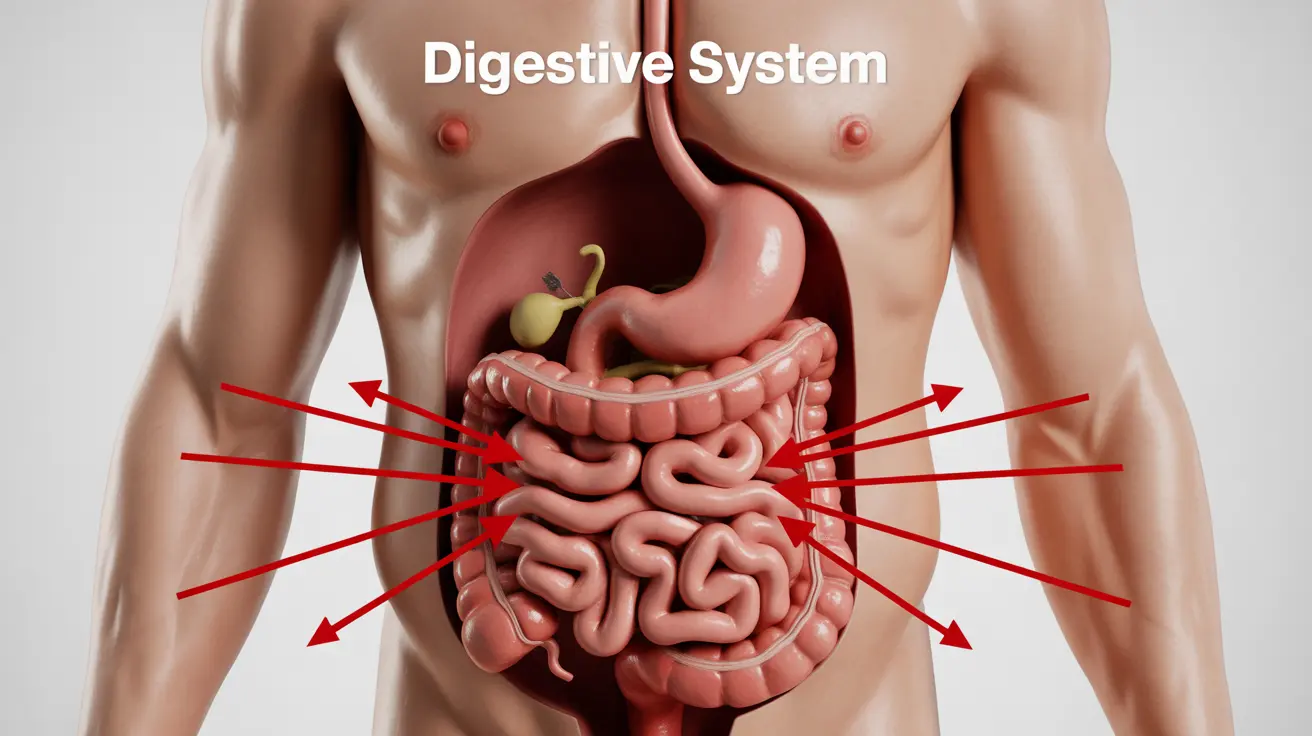Everyone passes gas, but social situations sometimes make it uncomfortable or embarrassing to release intestinal gas naturally. While holding in gas occasionally is common, understanding what happens to your body when you suppress this natural function is important for your digestive health and overall well-being.
Let's explore the physical effects of holding in gas, potential health risks, and how to manage this common situation healthily.
Understanding Intestinal Gas and Its Natural Function
Gas in the digestive system is a normal part of the body's digestive process. It's produced when bacteria in your intestines break down undigested food, and also when you swallow air while eating or drinking. Your body is designed to release this gas naturally through burping or passing gas through the rectum.
What Happens in Your Body When You Hold in Gas
When you deliberately prevent the release of intestinal gas, several physiological changes occur in your body:
Immediate Physical Effects
- Abdominal bloating and distention
- Increased pressure in the intestines
- Temporary discomfort or cramping
- Potential migration of gas to other parts of the digestive tract
Impact on Digestive Muscles
The sphincter muscles responsible for controlling gas release can become strained when repeatedly forced to retain gas. This can potentially lead to weakened muscle control over time and may affect your ability to hold gas when necessary.
Potential Health Consequences
Short-term Effects
Holding in gas occasionally typically results in temporary discomfort, including:
- Abdominal pain and cramping
- Bloating and distention
- Feelings of pressure in the rectum
- Possible heartburn or indigestion
Long-term Concerns
Regular suppression of intestinal gas may contribute to more significant issues:
- Chronic bloating
- Development of hemorrhoids
- Potential worsening of existing digestive conditions
- Increased likelihood of diverticulitis
Managing Gas Naturally
Instead of holding in gas regularly, consider these healthier approaches:
Dietary Modifications
- Eat slowly to reduce air swallowing
- Avoid common gas-producing foods when necessary
- Stay hydrated throughout the day
- Consider keeping a food diary to identify trigger foods
Social Strategies
When in social situations where passing gas might be uncomfortable:
- Excuse yourself briefly to a private area
- Practice proper eating habits to minimize gas production
- Consider using over-the-counter gas-reducing supplements before meals
Frequently Asked Questions
What happens to your body when you hold in a fart? When you hold in a fart, the gas builds up in your intestines, causing temporary bloating, discomfort, and potential pain. The trapped gas may move to other parts of your digestive system, leading to additional pressure and possible cramping.
Can holding in a fart cause pain or digestive problems? Yes, holding in gas can cause immediate pain, bloating, and cramping. In some cases, it may also lead to temporary digestive discomfort and increased pressure in your intestinal tract.
Is it harmful to regularly hold in farts, and can it worsen conditions like IBS? Regular suppression of gas can potentially worsen existing digestive conditions like IBS by increasing intestinal pressure and disrupting normal digestive function. It may also lead to chronic bloating and discomfort.
How can I reduce excessive gas buildup to avoid the need to hold in farts? You can reduce gas buildup by eating slowly, avoiding gas-producing foods, staying hydrated, and maintaining regular physical activity. Additionally, keeping a food diary can help identify and eliminate trigger foods.
Are there any serious health risks from holding in farts for too long? While occasional gas retention isn't typically dangerous, prolonged and regular suppression of gas can contribute to hemorrhoids, chronic bloating, and potential complications with existing digestive conditions.




